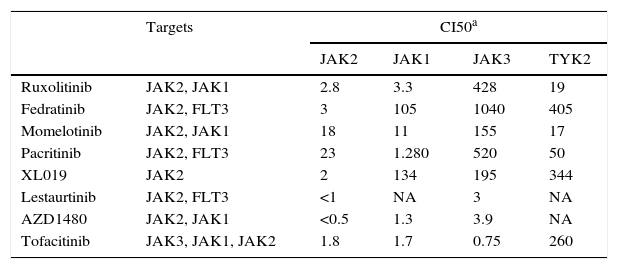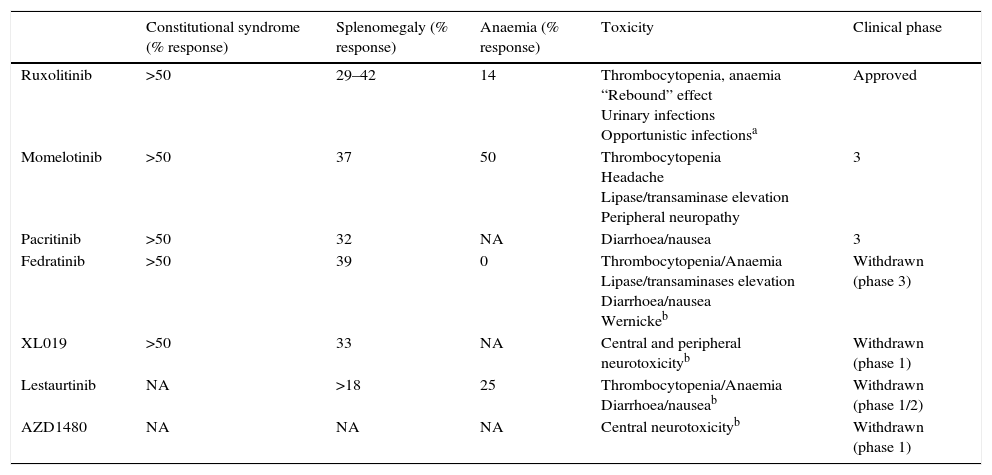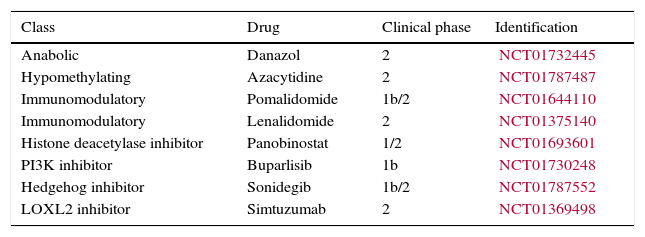Pharmacological inhibition of the kinase activity of JAK proteins can interfere with the signalling of immunomodulatory cytokines and block the constitutive activation of the JAK-STAT pathway that characterizes certain malignancies, including chronic myeloproliferative neoplasms. JAK inhibitors may, therefore, be useful to treat malignancies as well as inflammatory or immune disorders. Currently, the most significant advances have been made in the treatment of myelofibrosis, where these drugs may lead to a remarkable improvement in the control of hyperproliferative manifestations. However, available data suggest that this treatment is not curative of myelofibrosis. In general, JAK2 inhibition induces cytopaenias, with this being considered a class side-effect. By contrast, the extrahaematologic toxicity profile varies significantly among the different JAK inhibitors. At present, there are several clinical trials evaluating the combination of ruxolitinib with other drugs, in order to improve its therapeutic activity as well as reducing haematologic toxicity.
La inhibición farmacológica de la actividad cinasa de las proteínas JAK permite interferir la señalización de las citocinas inmunomoduladoras y bloquear la activación constitutiva de la vía JAK-STAT que caracteriza a ciertas neoplasias, en particular a las mieloproliferativas crónicas. Así, los inhibidores de JAK pueden ser útiles tanto para el tratamiento del cáncer como para el de enfermedades de origen inflamatorio o inmunitario. Hasta el momento, los avances más significativos se han dado en la mielofibrosis, donde permiten un mejor control de las manifestaciones hiperproliferativas, si bien no parecen tener capacidad de erradicar la enfermedad. En general, la inhibición de JAK2 se asocia al desarrollo de citopenias, siendo este un efecto adverso de clase. En cambio, el perfil de toxicidad extrahematológica varía de un inhibidor a otro. Actualmente, se están explorando combinaciones de ruxolitinib con otros fármacos cara a potenciar la eficacia terapéutica y a reducir su toxicidad hematológica.









